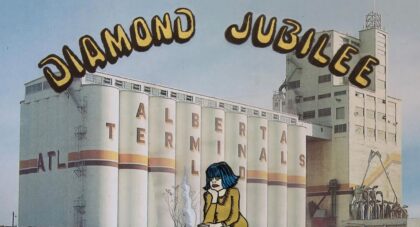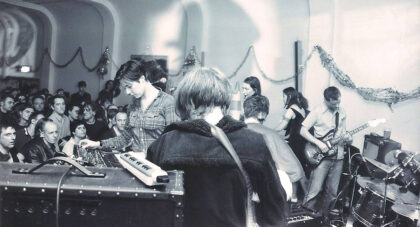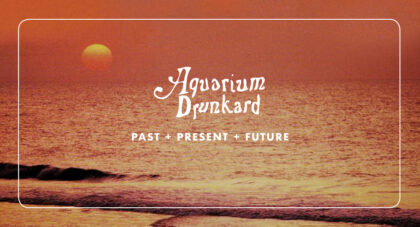Few songwriters cut to the core like Gillian Welch. Along with her musical partner David Rawlings, Welch pens songs that feel at once timeless and rooted in the deepest American musical traditions. For the Welch, traditional folk forms offer a language for approaching the human condition, a lens through which to view love, loss, death, and spirit. Emerging with 1996’s Revival, she's merged bluegrass, blues, and Appalachian music into a singular Americana sound. Her subsequent albums – including 2001’s Time (The Revelator) and 2011’s The Harrow & the Harvest – aren't only classics, but stand as some of the finest folk records of the new millennium.
Last month, Welch joined us on the Aquarium Drunkard Transmissions podcast in advance of her “An Evening With” tour dates with Rawlings, and the forthcoming vinyl reissue of her 2003 LP Soul Journey, due August 10th. We spoke to Welch via phone about her attention to the long player, album-length statement, and how it’s resulted in such fine lps. That conversation, minimally edited for clarity, is presented here.
Aquarium Drunkard: I want to start off by asking you about one of my favorite songs of yours, "Everything Is Free." When you wrote it, did you have any notion how prophetic that song would end up being? It certainly seems to speak to our current moment.
Gillian Welch: Sadly, it does speak to our current moment. It spoke to the moment I wrote it in. I wrote it in either very late 2000 or very early 2001, I can't quite remember. The whole Napster thing was really starting to have an impact and I just remember I was really, really sad. I just became very afraid that playing music wouldn't be a sustainable career, you know? I thought, "What are we gonna do?" That's kind of in that song. It became really clear to me that I would never stop playing music, but if it was not my career, I would have to do something else to make money. And so music would become something I did for myself, in the privacy of my home. I'm seeing that around me now. It's been really interesting, I have so many friends and acquaintances that are in their 20s and they really don't view music as a viable career. They're kind of giving up or they're not thinking about it in the same way that I did, really. So I don't know, I'm sorry that it's not better than it is now. I don't think it's always gonna stay this way, but it's an ongoing conundrum.
Only the good shit. Aquarium Drunkard is powered by its patrons. Keep the servers humming and help us continue doing it by pledging your support.
To continue reading, become a member or log in.


